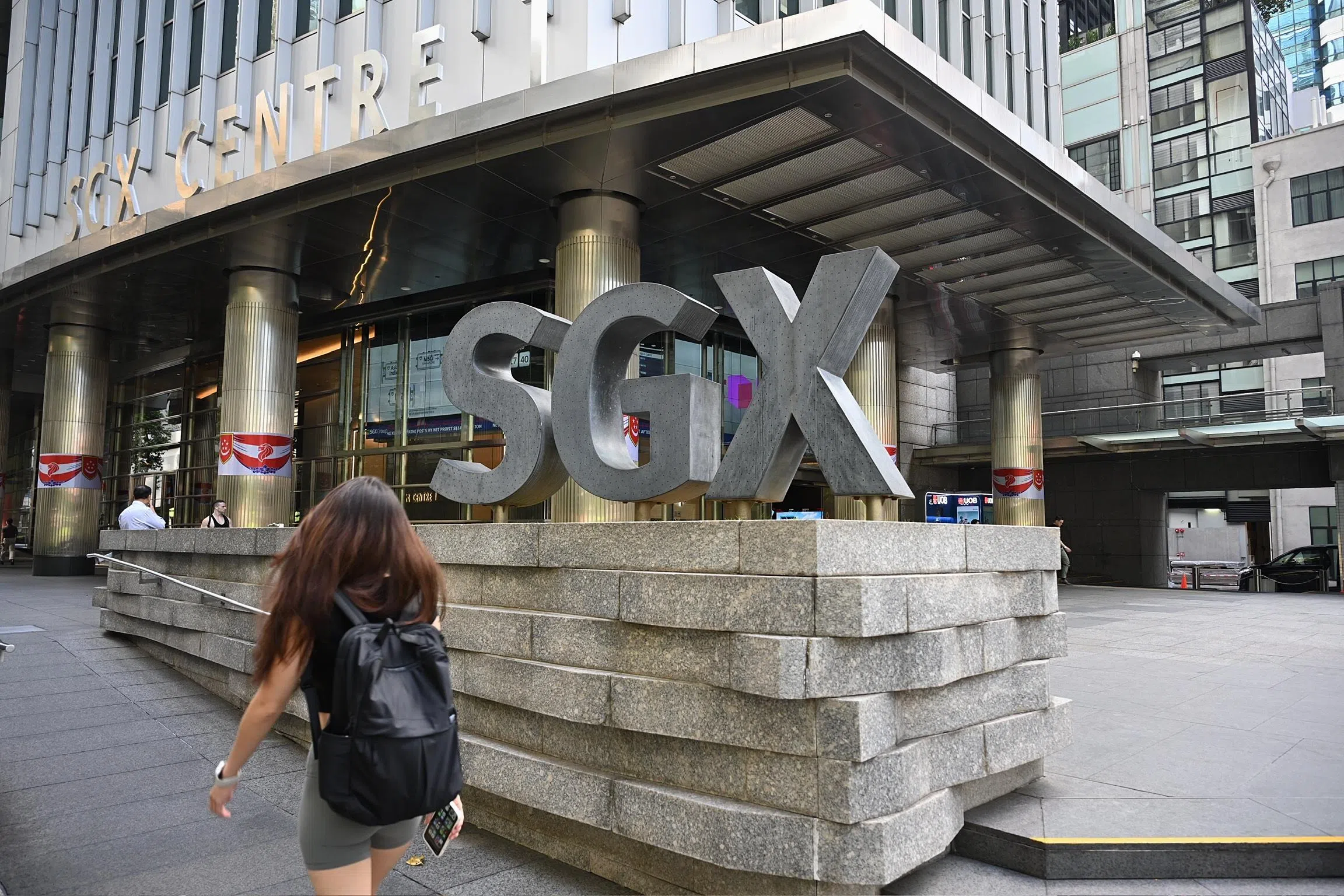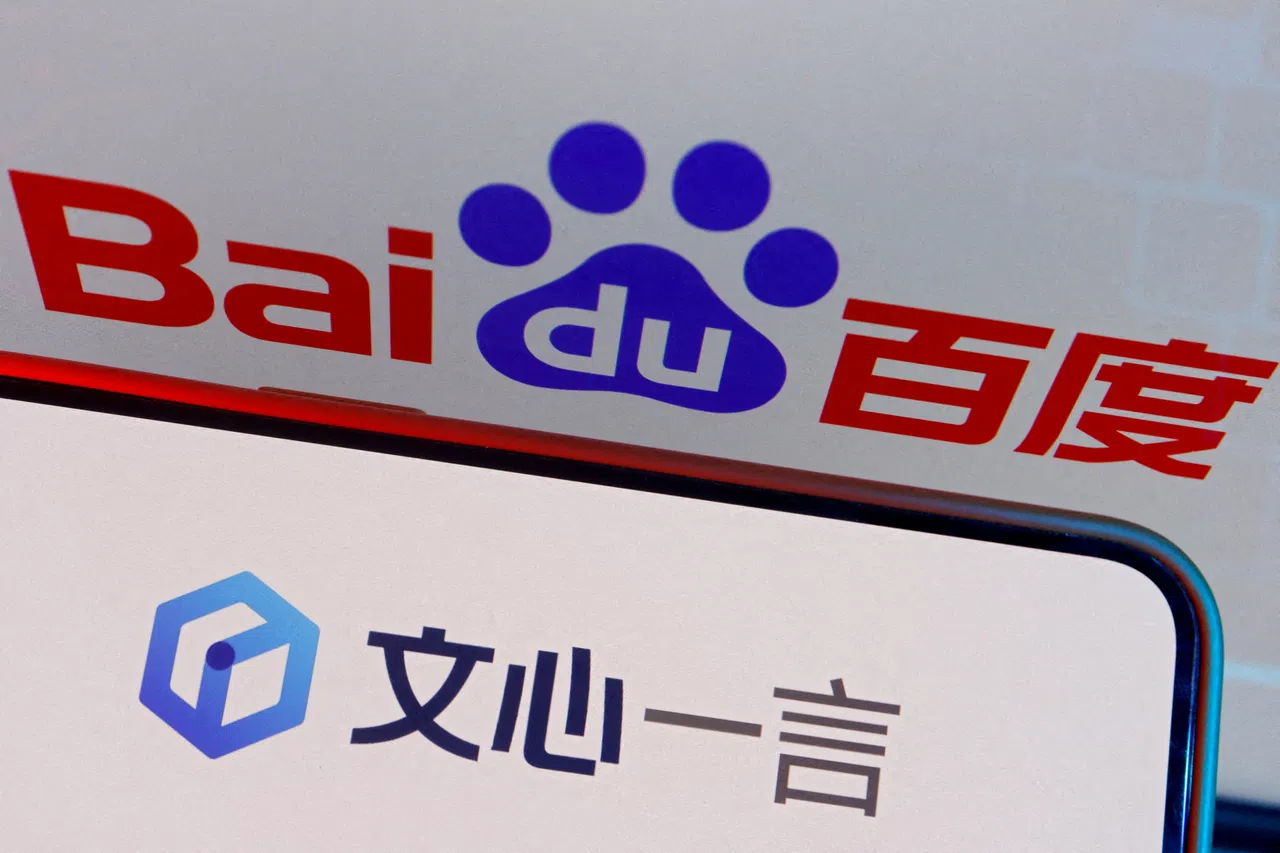OVER the five trading sessions from Mar 7 to 13, institutions were net sellers of Singapore stocks, leading to a net institutional outflow of S$221 million, adding to the net outflow over the preceding 10 sessions. This brings the net institutional outflow for the 2025 year to Mar 13 to S$1.45 billion.
Institutional flows
Over the five trading sessions, the stocks that saw the highest net institutional outflows included OCBC, DBS, UOB, SATS, CapitaLand Ascendas Real Estate Investment Trust (Reit), CapitaLand Investment, Hongkong Land Holdings, Mapletree Logistics Trust, City Developments Ltd, and Sembcorp Industries.
Meanwhile, CapitaLand Integrated Commercial Trust led the net institutional inflows, followed by Singapore Airlines, Singtel, Jardine Matheson Holdings, ST Engineering, Frasers Centrepoint Trust, Yangzijiang Financial Holding, Keppel DC Reit, Wilmar International, and Thai Beverage.
From a sector perspective, industrials experienced the highest net institutional inflows, while financial services saw the most net institutional outflows.
Share buybacks
The five sessions saw 24 primary-listed companies conduct buybacks with a total consideration of S$49.7 million, up from S$40 million in the preceding five sessions. OCBC led the consideration tally, with 1.4 million shares bought back at an average price of S$16.75 a share.
Director transactions
There were more than 60 director interests and substantial shareholdings filed for close to 40 primary-listed stocks. Directors or chief executive officers filed 17 acquisitions and one disposal, while substantial shareholders filed 10 acquisitions and one disposal. This included director or CEO acquisitions in Chemical Industries (Far East), China Sunsine Chemical Holdings, ES Group (Holdings), Hong Leong Asia, IFS Capital, MindChamps PreSchool, Nam Cheong, Singapore Shipping Corporation, Sinostar PEC Holdings, Stamford Land Corporation, TOTM Technologies, Uni-Asia Group, and Union Steel Holdings.
BT in your inbox
Start and end each day with the latest news stories and analyses delivered straight to your inbox.
Digital Core Reit
Franklin Resources, one of the world’s largest investment managers, also known as Franklin Templeton, has emerged as a substantial shareholder of Digital Core Reit. Filed on Mar 10, an acquisition on Mar 6 took Franklin Resources’ deemed interest above the 5 per cent threshold to 5.06 per cent. The 969,800 units were acquired at an average price of US$0.577 apiece. The fund noted that the unit acquisition was by funds or client accounts that are managed by investment advisers directly or indirectly owned by Franklin Resources.
Back on Feb 12, Digital Core Reit declared a distribution per unit (DPU) of US$0.036 for the 2024 financial year. For the year, the pure-play data centre Reit also signed new and renewal leases worth US$74 million in annualised rental revenue. This extended the weighted average lease expiry by two years, and sees the Reit maintain its 97 per cent occupancy. Over US$250 million in investments were also completed, expanding the group’s footprint in Europe and Asia.
On the capital management side, 27 million units were also repurchased at an average price of US$0.576 apiece, delivering 1.8 per cent DPU accretion. Additionally, the balance sheet was strengthened with US$280 million from asset sales and equity fundraising, extending debt maturity from 2.8 to 4.7 years. This also maintained its 34 per cent leverage ratio, with US$540 million debt headroom.
Hong Leong Asia
On Mar 6, Hong Leong Asia executive chairman Kwek Leng Peck acquired 733,000 shares at an average price of S$1.07 per share. This increased his total interest from 1.29 per cent to 1.39 per cent. For the year ahead, the diversified Asian multinational with core businesses in building materials and powertrain solutions, is focused on building order books, improving operational efficiencies and managing costs.
Nam Cheong
Between Mar 10 and 11, Nam Cheong CEO Leong Seng Keat acquired 160,000 shares at an average price of S$0.54 apiece. This increased his total interest from 3.53 per cent to 3.57 per cent. Based in Sarawak, Nam Cheong was founded in 1968 as a builder of fishing vessels. Today, it owns and operates one of Malaysia’s largest shipbuilding yards for offshore service vessels (OSVs), while also being Malaysia’s largest OSV builder.
Leong joined the group in 2005 as an executive director, bringing extensive sales and management experience. He successfully marketed the group’s vessels internationally and was appointed CEO in 2013. Since then, he has led the group’s global market expansion and innovation in fuel-efficient vessels. In 2016, he established the ship management arm, Skom. Under his leadership, the group has grown to operate a charter fleet of around 30 vessels.
On Feb 28, Nam Cheong reported an attributable net profit of RM790.1 million for FY2024, up from RM157.3 million in FY2023. Revenue in FY2024 rose 45.1 per cent to RM689.4 million, driven by fleet expansion, improved daily charter rates, and higher utilisation of larger vessels. Gross margin also increased to 53.1 per cent, from 35.5 per cent in FY2023, mainly due to better daily charter rates.
Leong highlighted that 2024 was a pivotal year with record-breaking revenue and profitability for Nam Cheong’s vessel chartering business. He noted the group secured multi-year charter contracts for one-third of its fleet with regional and international oil majors, significantly enhancing its revenue resilience.
Looking at 2025, Leong noted that the group will remain agile, leveraging its fleet to seize growth opportunities in the active oil and gas market and drive long-term sustainable growth.
Uni-Asia Group
Between Mar 3 and 12, Uni-Asia Group executive director Lim Kai Ching acquired 90,000 shares at an average price of S$0.77 apiece. This increased his direct interest from 0.02 per cent to 0.13 per cent. Lim, who became executive director on Feb 28, joined Uni-Asia in June 2011. He was appointed chief financial officer in August 2011, and group CFO in 2015 till Mar 31, 2025.
Lim has extensive experience in finance, accounting, risk management, investment, audit, investor relations, and sustainability. Before Uni-Asia, he worked at State Street Fund Services (Singapore), was financial controller of a China-based seafood processing company and held various roles at GIC. Replacing Lim as CFO will be Rachel Choo, the existing general manager of accounting at Uni-Asia Group.
As an investment manager, Uni-Asia Group specialises in alternative assets, including shipping, such as handy dry bulk ships, and real estate. On Feb 28, Uni-Asia Group reported a US$28.2 million net loss for FY2024. However, net profit would have been US$2.8 million if excluding the US$31 million non-cash fair valuation loss in Hong Kong property projects.
Excluding the fair valuation loss, the group remains profitable, and due to the non-cash nature of its fair valuation loss, cash and bank balances increased by US$7.2 million to US$45.5 million at the end of FY2024, up from US$38.3 million a year earlier.
The group’s debt-equity ratio also remains healthy at 36 per cent. As a result, the group has proposed a final dividend of S$0.02 per share, subject to approval at the forthcoming annual general meeting. This comes on top of the interim dividend of S$0.01 per share that was distributed in September 2024, culminating in a total dividend of S$0.03 per share for FY2024.
For FY2024, the group’s largest revenue contributor was the ship-owning and chartering segment. The group noted that despite this decrease in total charter income, the average daily charter rate increased quarterly in FY2024 and had outperformed FY2023 since the second quarter. This improvement is partly due to the group’s strategy of reducing the number of 29,000 deadweight tonnage ships, which generated less revenue, and partly due to a strong charter market in FY2024.
Looking forward, the group will explore acquiring second-hand vessels from the open market or its 18 per cent-owned joint investment vehicles, provided these investments align with its risk-return profile.
The next largest FY2024 revenue segment was the property investment in Japan, which increased by 12 per cent to US$18 million in FY2024, up from US$16.1 million in FY2023. However, net profit after tax fell by 24 per cent to US$0.9 million, down from US$1.2 million, mainly due to higher costs and the depreciation of the yen against the US dollar.
Looking forward, while the group has written off all its investments in Hong Kong property projects, it will seek property investment opportunities beyond Tokyo to diversify its holdings in Japan.
Since reporting these results on Feb 28, Uni-Asia Group’s share price has rallied 11 per cent to S$0.80, with the stock’s year-to-date average daily trading turnover doubling.
The writer is the market strategist at Singapore Exchange (SGX). To read SGX’s market research reports, visit sgx.com/research.






